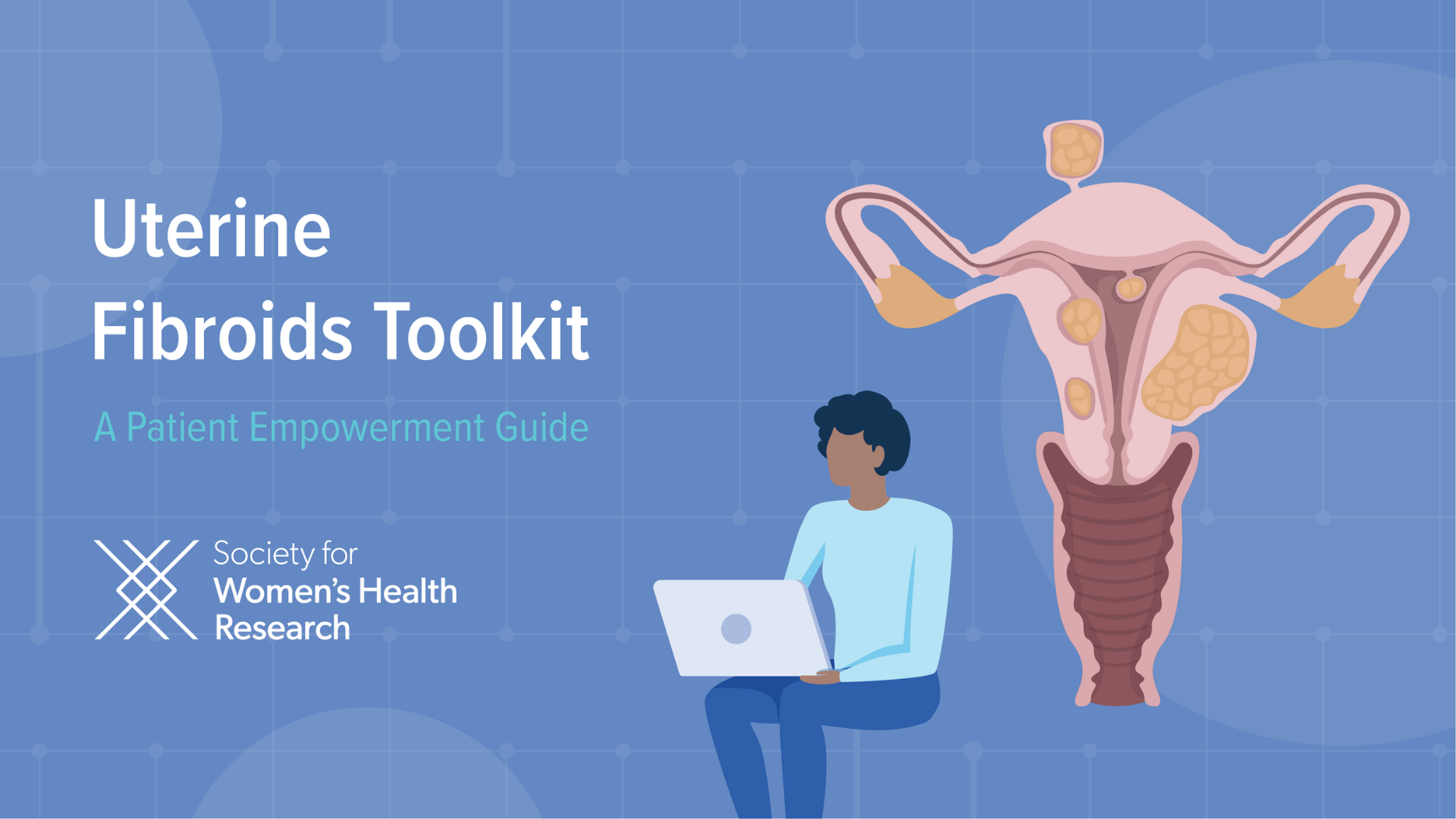By Monica Lefton, SWHR Communications Manager.
Uterine fibroids (non-cancerous growths in and around the uterus) are one of the most common gynecological conditions nationwide, affecting an estimated 26 million women ages 15 to 50 in the United States. Despite their pervasiveness, this estimate, as well as other fibroids statistics, is thought to be underestimated because women so often go undiagnosed or may not seek medical care for their symptoms. Understanding what uterine fibroids are, knowing what to look out for, taking preventive care measures, and knowing how to talk to your health care provider are all important elements in empowering patients to take charge of their health.
To help individuals in their journey, the Society for Women’s Health Research (SWHR) launched its Uterine Fibroids Toolkit: A Patient Empowerment Guide this month. Created with the help of uterine fibroid patients and experts, this toolkit includes easy-to-understand information, resources, and tips to assist individuals of all ages with uterine fibroids to navigate their care and better understand:
- What uterine fibroids are and who they affect
- Gynecological health and keeping a period diary
- Preparing for a doctor’s visit, including a worksheet to fill out and questions to ask
- Treatment options – non-prescription and prescription medications, surgical procedures, other options
- Considerations for deciding on a treatment plan
- The effects of uterine fibroids on fertility
- Managing fibroid symptoms during menopause
- Wellness tips for living with uterine fibroids
An understanding of one’s gynecological health, paired with clear communication between patients and providers, is important for an accurate and timely diagnosis of fibroids and ensuring that patients can begin a management or treatment practice that is right for them. SWHR hopes that the contents of this toolkit will help individuals with fibroids facilitate such productive conversations and equip them with the tools to live their best life yet.
Download The Uterine Fibroids Patient Toolkit
The toolkit is a project of SWHR’s Uterine Fibroids Program, which convenes a diverse group of researchers, health care providers, patients, and health care thought leaders working to educate and engage society about the burden of fibroids, which significantly impact the lives of the women.
Thanks to our sponsors, AbbVie, Myovant | Pfizer, and Roche for their support of this educational program.
